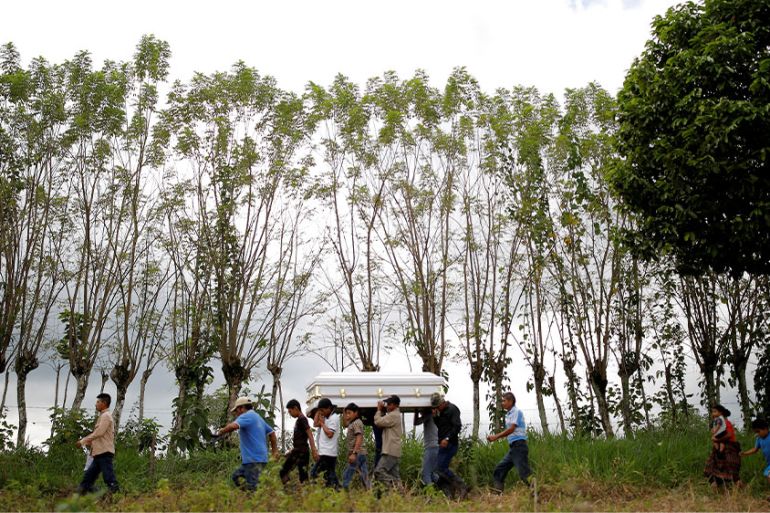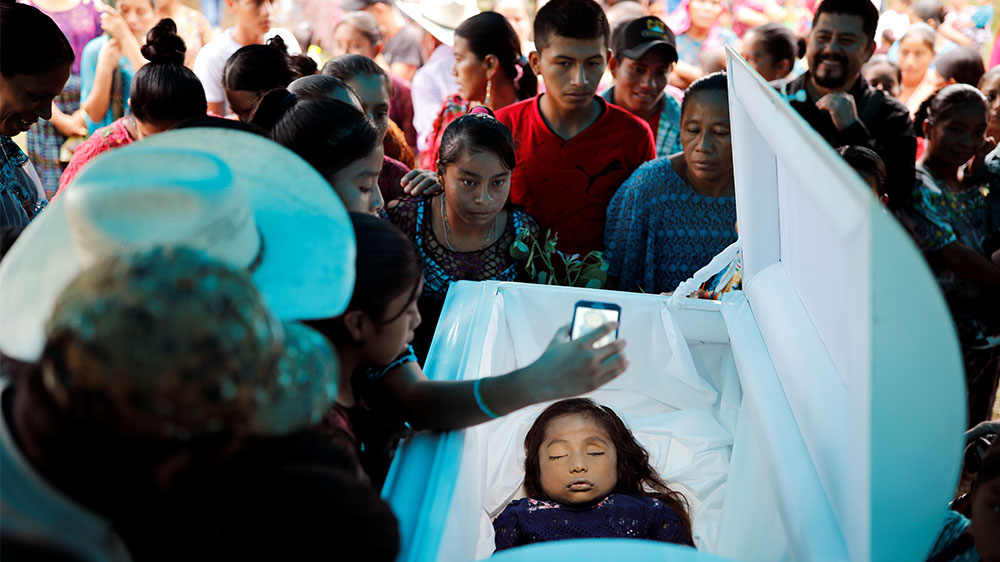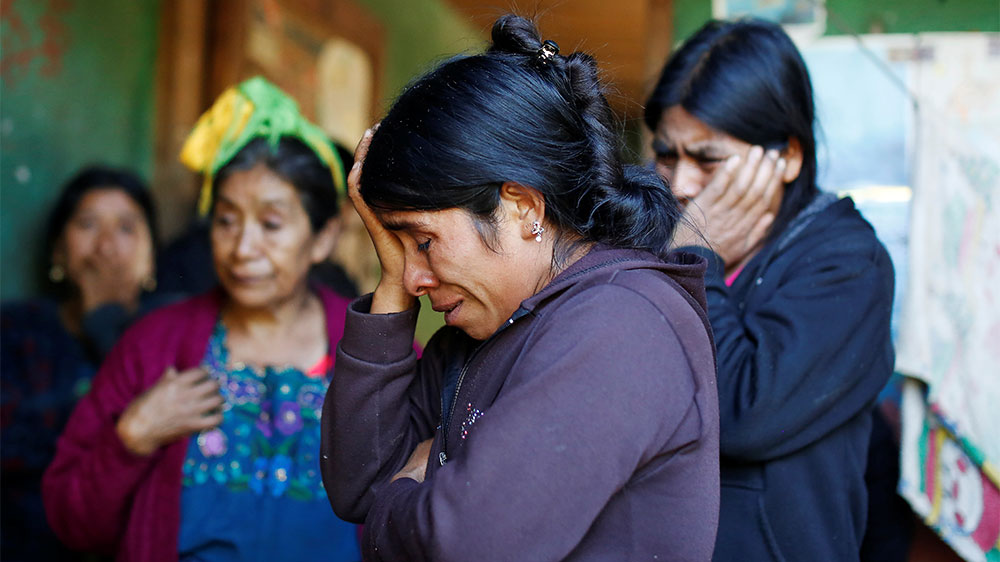Deaths of migrant children in US custody could have been averted
Guatemalan migrants Felipe Gomez Alonzo, 8, and Jakelin Caal, 7, died in 2018 after being detained by US border patrol.

The deaths of two migrant children in the custody of the United States border patrol in 2018 could have been averted and US agencies need to do more to protect migrant children’s health, medical doctors told a congressional committee on Wednesday.
Felipe Gomez Alonzo, age eight, and Jakelin Caal, age seven – both from Guatemala – died shortly after being detained by US Customs and Border Protection (CBP) at the US-Mexico border.
Keep reading
list of 4 itemsChildren among 16 dead after asylum-seeker boat capsizes off Djibouti: UN
Five people die in attempt to cross English Channel to the UK
UK passes bill to deport asylum seekers to Rwanda: What’s next?
“Available records make clear that Jakelin and Philippe both suffered terrifying and painful deaths that could potentially have been prevented by timely access to paediatric medical care,” said Fiona Danaher, a paediatrician at Massachusetts General Hospital.
Danaher appeared before the Homeland Security Committee of the House of Representatives, where Democrats are pursuing an investigation of a policy of the administration of US President Donald Trump: separating migrant children from their parents. Felipe and Jakelin were among six minors who died in US border patrol custody between September 2018 and May 2019.

Caal “died of septic shock which, because it went untreated over many hours, cascaded into multiple organ failure,” Danaher said. Alonzo died from “untreated influenza complicated by pulmonary haemorrhage in the context of bacterial pneumonia and sepsis”, she said.
By detaining children in crowded conditions without adequate access to medical care, the CBP is “perpetuating systems that place children at risk for medical neglect”, Danaher told the committee. And the emergence of COVID-19 adds new risks.
The Government Accountability Office, an oversight arm of the US Congress, issued a report on Wednesday finding the CBP has not consistently deployed medical care to its stations along the southwest border and has mishandled emergency medical funds Congress provided. A Department of Homeland Security (DHS) Inspector General’s report found there was no malfeasance by individual CBP officers in the deaths of Alonzo and Caal.
Both deaths were “preventable” through early recognition and treatment, Dr Roger Mitchell Jr, the chief medical examiner for the city of Washington, DC, told the committee.

Representative Mark Green, a Republican and also a medical doctor, in Wednesday’s hearing defended the CBP from blame for the children’s deaths.
The standard of care that applies in hospitals in the US is not a reasonable benchmark for “triaging 160 migrants in the dark of the night in Antelope Wells”, the remote New Mexico area where Caal was detained and placed on a 90-minute bus ride with her father to a border station, he said.
“The answer is not to turn CBP stations into Mass General,” Green said.
The CBP deployed an additional 300 contracted doctors and medical professionals to its border stations in response to the deaths.
More than 5,400 children have been separated by US immigration authorities from their parents at the US-Mexico border under the Trump administration’s “zero tolerance” policy, according to a 2019 estimate by the American Civil Liberties Union.
The policy generated intense controversy in the US and, although Trump announced a reversal, the CBP continues to separate children from their parents, migrant advocates and lawyers for families say.
Committee chairman Representative Bennie Thompson said DHS was “intentionally impeding” the committee’s investigation by refusing to produce subpoenaed documents. Thompson said the inspector general’s report absolving CBP officers was “incomplete” and “potentially misleading”.
“The report fails to examine the many troubling questions that these deaths raise regarding CBP ability to care for children in custody, including questions about the adequacy of the agency’s policies, procedures and training,” Thompson said.

“If children are to be detained in CBP facilities, it is incumbent upon the agency to strengthen its medical infrastructure,” Danaher said.
“Given the current COVID-19 epidemic, and the impending arrival of another influenza season, time is of the essence,” she said.